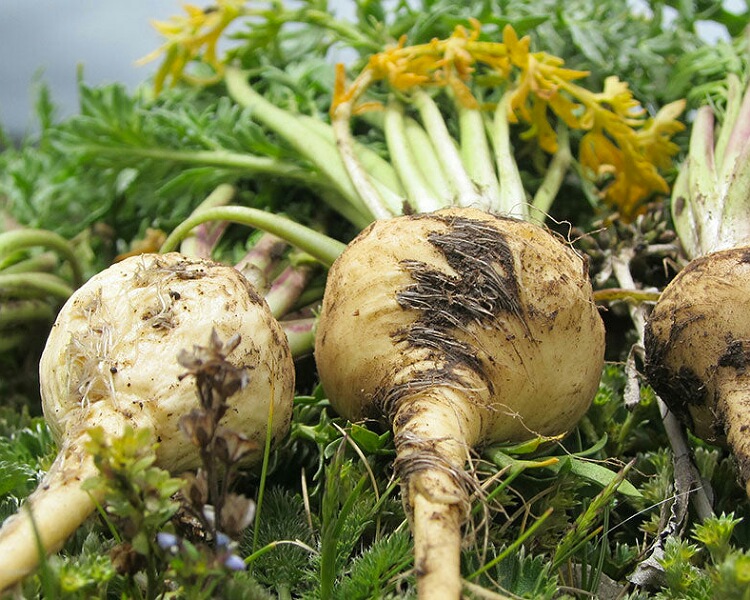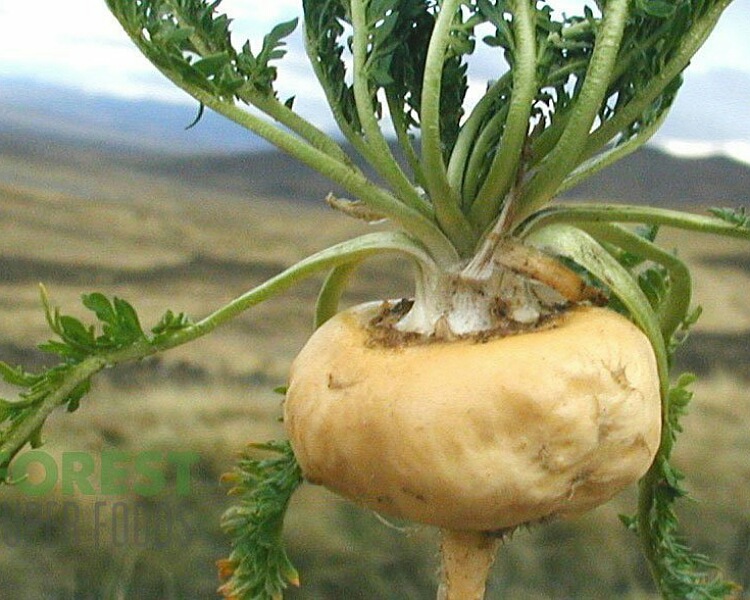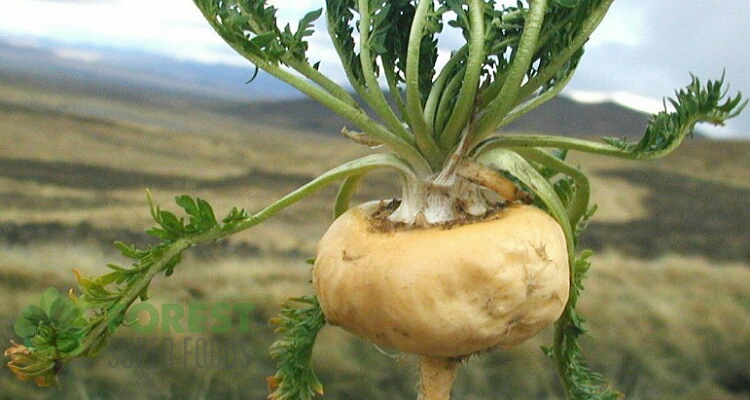Maca plant has been used since ancient times in Peru as a food and medicine. This has gained fame in the last few decades due to claims of its benefits in infertility and sex drive decline.
Maca root is used extensively for this purpose. What are the health benefits and side effects of this root for the body?
Maca plant and Maca root
The Maca plant is grown vastly in Peru. Its scientific name is Lepidium meyenii. It is also called Peruvian Ginseng.
These plants are plenty in the Peruvian Andes mountain range on the high plateau region. This plant can withstand the harsh climatic conditions of the place.

The root is like cruciferous vegetables such as broccoli, cauliflower, cabbage, and kale. The locals in Peru and its mountainous regions have been using maca as food for more than 2000 years.
They add it to their porridge as well in their fermented drinks. They claim that it has medicinal properties to treat joint and respiratory diseases and also boost libido and fertility.
As the demand for this increased worldwide, many countries started cultivating this crop including China where it is now grown in the mountains of Yunnan province.
Nutritive value of the root
The root has a lot of amino acids, fiber, minerals, and vitamins. It contains beneficial phytochemicals such as macamides, alkaloids, macaridine, and glucosinolates.
It is low in fats and sodium. 59% of it is carbs but this is of good quality. Its protein content is 10.2% and this is highly bioavailable and easy for the gut to assimilate.

Moreover, 8.5% is fiber. It has a lot of amino acids such as aspartic acid, lysine, glutamic acid, serine, glycine, histidine, arginine, threonine, valine, phenylalanine, etc.
20 different types of fatty acids are present in the root. Of these, saturated is 45% and unsaturated makes 55% of the fatty acid content of this root.
The vitamins include B1, C, niacin, and riboflavin. Additionally, they are rich in copper, calcium, iron, manganese, magnesium, potassium, phosphorus, zinc, boron, and selenium. Also, they have plant sterols that can lower blood cholesterol.
Health benefits
Studies on its benefits exist but are very limited. More large-scale studies would be useful.
The extract of the roots might assist in increasing sex drive. In a 2015 study, researchers gave 45 women with reduced sex drive due to antidepressant drugs 3000 mg of maca root per day for 12 weeks.
The sex drive improvement was remarkable. Similarly, a previous study on 131 recruits in 2010 showed that the root benefitted in improving libido.

Some isolated small-scale studies have shown its benefits in increasing sperm count in males. A 2020 study also showed that 2000 mg of this root consumed daily for 12 weeks can sperm counts.
But it did not affect sperm motility. Moreover, it has some role in providing relief from menopausal symptoms. In 2011, a meta-analysis showed that few studies did show that maca root helps such women.
But one requires more studies before prescribing it for such conditions.
Some studies have also shown that having the extract of the root can improve the moods and energy levels of people consuming it. It also reduces anxiety and depression.
There are claims that it diminishes cognitive decline and improves skin health. It also is said to decrease benign prostate hyperplasia. But all these studies are animal studies and one cannot extrapolate them to humans.
Read more: Galangal root: uses and potential health benefits!
Consuming it has no side effects. Currently, it is also available in powder and capsule form.
